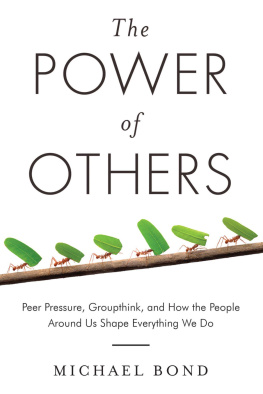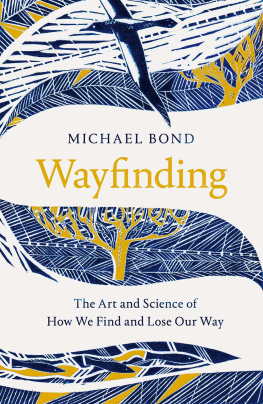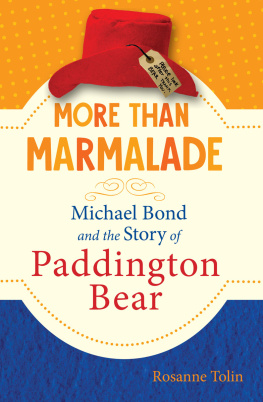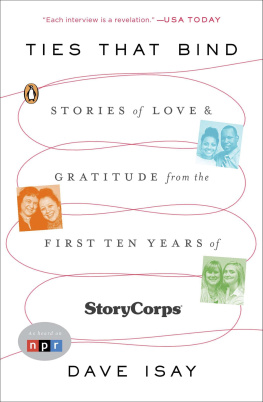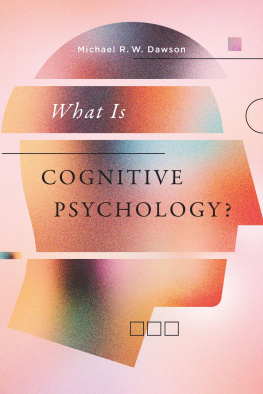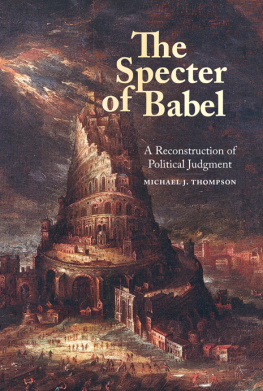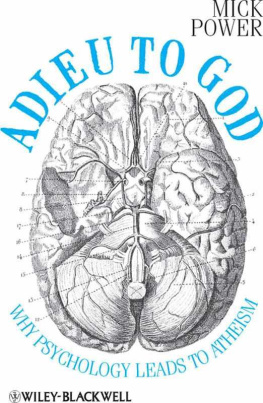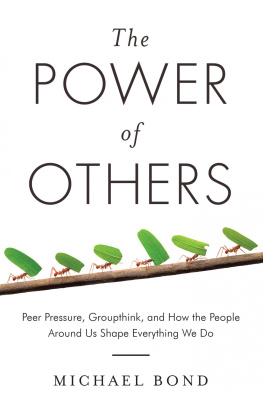All quotations are taken from interviews with the author unless otherwise specified.
Prologue
We may think were running the show, but most of the time its the other way round. The situation we are in, and particularly the people around us, hold sway over our thoughts and behaviours far more than we like to imagine.
In almost every area of our lives, we are steered by others. They influence what we wear, the music we like, the food we eat (and how much of it), our voting habits, how we invest our money. They affect our mental state, the ebb and flow of our moods and emotions. They even colour our moral outlook, whether we act good or bad.
The scientific study of these group dynamics, which work beneath our conscious radar, is transforming our understanding of human nature. We are not the autonomous ringmasters we believe we are; we are social through and through. This insight is disquieting because it challenges the way we see ourselves, and how we judge others. It suggests, for example, that character and personality are not a reliable guide to future conduct. It also forces us to confront some awkward questions about the human condition. Is criminality a state of mind? Does evil beget evil? Are heroes born heroic?
Acknowledging such complexities can be difficult. Recall the outcry in July 2013 when Rolling Stone depicted on its cover a photograph of Boston bombing suspect Dzhokhar Tsarnaev looking doe-eyed and tousle-haired and a little too boyish and innocent for many tastes. The implication was that alleged murderers should not be shown to look like rock stars, or like their mothers sons.
Of course they can be all these things. The uncomfortable truth is that people are never the knowable rogues they appear to be. By and large it is their sociability, their compulsive groupishness, that makes it so.
There is no doubting the human fondness for groups. We categorize people on the flimsiest of pretexts: the length of their hair, their turn of phrase. Little wonder that much of human behaviour is understandable only at the level of the collective. In 1954, the Turkish-American psychologist Muzafer Sherif demonstrated this scientifically for the first time in his Robbers Cave experiment, pitching two groups of adolescent boys in competition with each other at a summer camp in Oklahoma to study the effect on their behaviour. Within days, they had developed an inter-group rivalry that resembled tribal warfare. Yet the boys were almost identical in background and age: Sherif had conjured up discrimination and intolerance simply by drawing a line in the sand.
In the decades since, social psychologists have demonstrated many times how effortlessly we construct a narrative of us and them, and how quickly prejudice can follow. They have shown, for example, that people will instinctively divide themselves according to the colour of their eyes, the colour of their shirt, their preference for a particular artist, whether they over- or under-estimate the number of dots in a pattern, whether a coin lands heads up or tails.
Even when based on such arbitrary criteria, group identities run deep. Mark Levine, now at the University of Exeter, found that Manchester United fans, who had been asked to ponder the virtues of their club, were three times as likely to help an injured stranger in a Manchester United shirt as one in a Liverpool or plain shirt. When he repeated the experiment, this time asking them to think about being a football supporter in general, they were happy to lend a hand whatever shirt the stranger was wearing so long as it was a football shirt. Group identities are transformative, but they are transitory too. They are also instinctively adopted. This impulse to sunder all the peoples of the world into belligerent collectivities has existed as long as humanity itself, notes historian David Cannadine in The Undivided Past.
Groupishness makes evolutionary sense. In our ancestral environment, natural selection would have favoured individuals who co-operated with each other and were quick to distinguish friend from foe. Group living provided benefits, such as the division of labour and protection from predators and enemies, that made survival and reproduction more likely. These tribal proclivities are knitted into our physiology, moderated by hormones and neurotransmitters such as testosterone, which promotes competitive behaviour, and oxytocin, which boosts peoples love for their in-group (but not for all humanity as is sometimes suggested). This helps explain both our innate hunger for social connection and the excoriating effects of loneliness. The presence of others can lead us astray, but their absence can propel us to a far worse place.
Many people find it daunting, sometimes overwhelming, to reflect that they are influenced by those around them in such dramatic and fundamental ways. They worry that they are not in control of their lives, that it is not their hand on the tiller, that they will lose their mind in a mob or that group forces will corrupt them as they have corrupted the victims of so many cults. Much of this fear is based on myth (mobs are neither mindless nor mad). But not all of it. Unquestionably, our group leanings can drag us to the moral depths.
They can make us less tolerant towards those who differ from us, and even split societies apart. They have on countless occasions caused people to favour aggression over negotiation. They can trigger the collapse of banks. They can persuade ordinary people to commit extraordinary acts of brutality. They can turn disaffected loners into mass killers. They can lead us to extreme views and distort our thinking on all kinds of issues. They can make us conform too much to what other people think of us, a serious problem when what other people think of us is negative (this is probably the best explanation for why, in some cultures, girls do worse at maths and science than boys, and why African-American students often under-perform when they think they are being tested on intellectual ability).
Yet they can raise us to heights we are unlikely to reach by ourselves. Most acts of resistance to totalitarian regimes during the twentieth century were communal. Most heroes are not born extraordinary but step up in response to the desperate need of their compatriots, and its almost impossible to predict who they will be. Armies can make up in camaraderie and solidarity what they lack in numbers. Solidarity is also behind much sporting achievement and has made possible extraordinary feats of adventure and survival in extreme environments. Crowds, contrary to how they are usually portrayed, tend to be highly co-operative and altruistic, to the extent that social psychologist John Drury has dubbed them the fourth emergency service.

